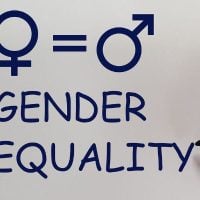Deadline: 20-Apr-23
The European Commission (EC) has announced the proposals for Circular Economy Approaches for Zero Emission Vehicles.
Scope
The objective will be to demonstrate the feasibility of circular economy (CE) and net-zero approaches for the EV value chain over its full lifetime (cradle to cradle). The proposed activities should focus on vehicle production (design, manufacturing and assembly), maintenance, repair and End-of-Life (EoL). Additionally, LCA-based vehicle concepts, their related resource and energy efficient manufacturing and CE consistent EoL strategies should be shown.
Funding Information
The check will normally be done for the coordinator if the requested grant amount is equal to or greater than EUR 500 000, except for:
- public bodies (entities established as a public body under national law, including local, regional or national authorities) or international organisations; and
- cases where the individual requested grant amount is not more than EUR 60 000 (lowvalue grant).
Outcomes
Project results are expected to contribute to all the following outcomes:
- Increasing the degree of circularity of EVs, thus reducing their environmental footprint over the full life cycle. Specific circular design approaches are needed in particular for some light-weighting materials (recycling of fibre reinforced materials and advanced steel, aluminium and magnesium alloys), reuse and recycling technologies for new types of components (traction motors, electronic components, wire bundles, etc. ) and improved post shredder technologies supporting higher recovery of critical raw materials.
- Increasing the awareness and acceptability of circular economy and Life Cycle Assessment (LCA) based design of innovative zero-emission solutions for the clean road transport challenge.
- Contributing to a harmonised way of measuring the circularity of the economy in the automotive industry.
- Demonstrating the potential of these actions by delivering a circular car prototype (test bench ready) aiming at 0% virgin material use by mass for all vehicle components except cells, e-machines and electronics.
- Accelerating the transformation of Europe towards being the first digitally enabled, circular, climate-neutral and sustainable economy.
- Improving markets for secondary raw materials and facilitate higher uses of recycled content of plastics, glass and possibly REEs in the automotive supply chain.
- Contributing to Europe’s world leadership in automotive innovation, production and services through increasing skills with circular economy techniques and accelerating the uptake of innovative circular economy-based solutions for EV, reducing the dependency on critical raw materials via the consistent recovery and use of secondary materials.
Eligibility Criteria
- To become a beneficiary, legal entities must be eligible for funding.
- To be eligible for funding, applicants must be established in one of the following countries:
- the Member States of the European Union, including their outermost regions,
- the Overseas Countries and Territories (OCTs) linked to the Member States,
- countries associated to Horizon Europe;
- the following low- and middle-income countries.
For more information, visit European Commission.









































